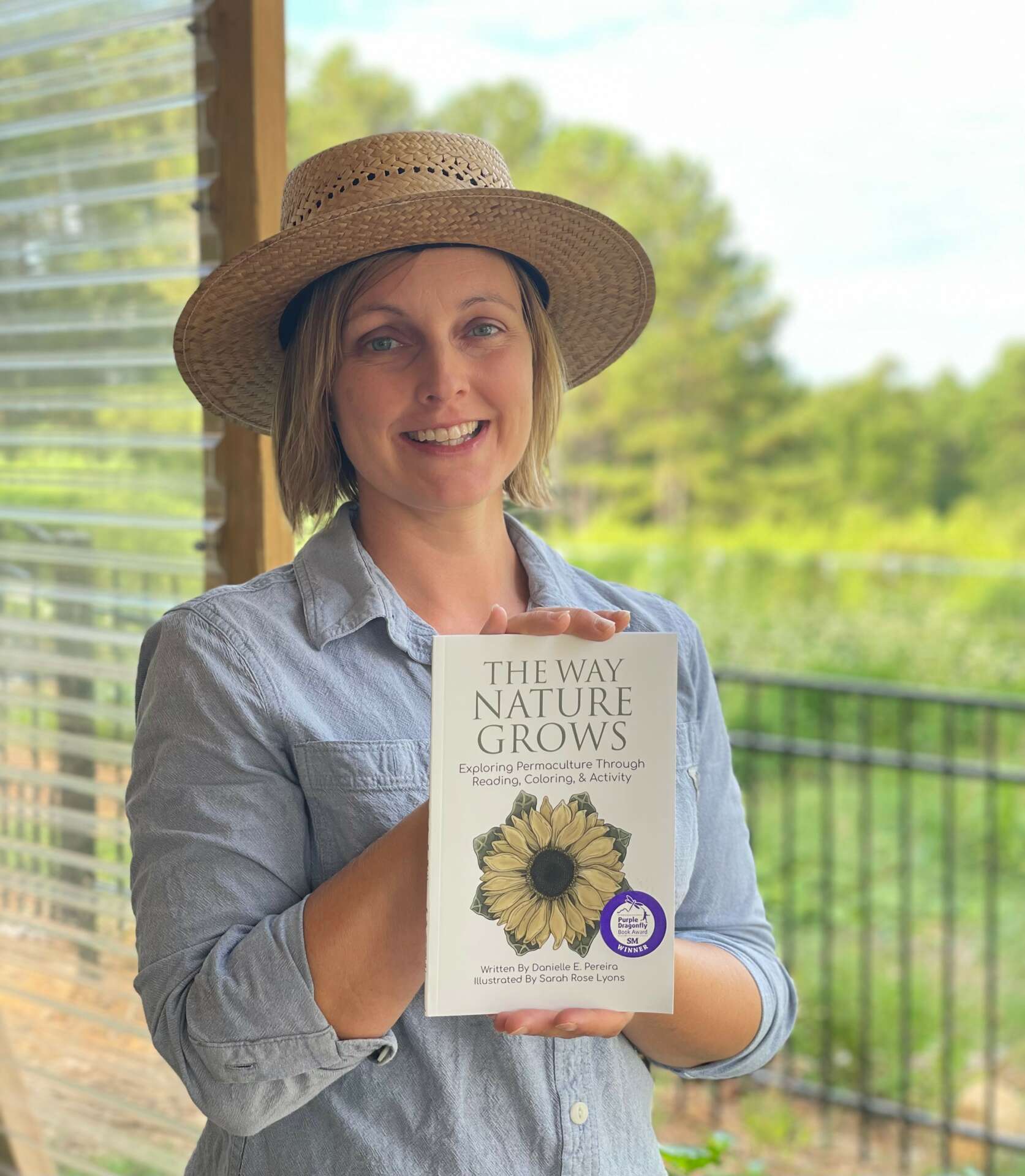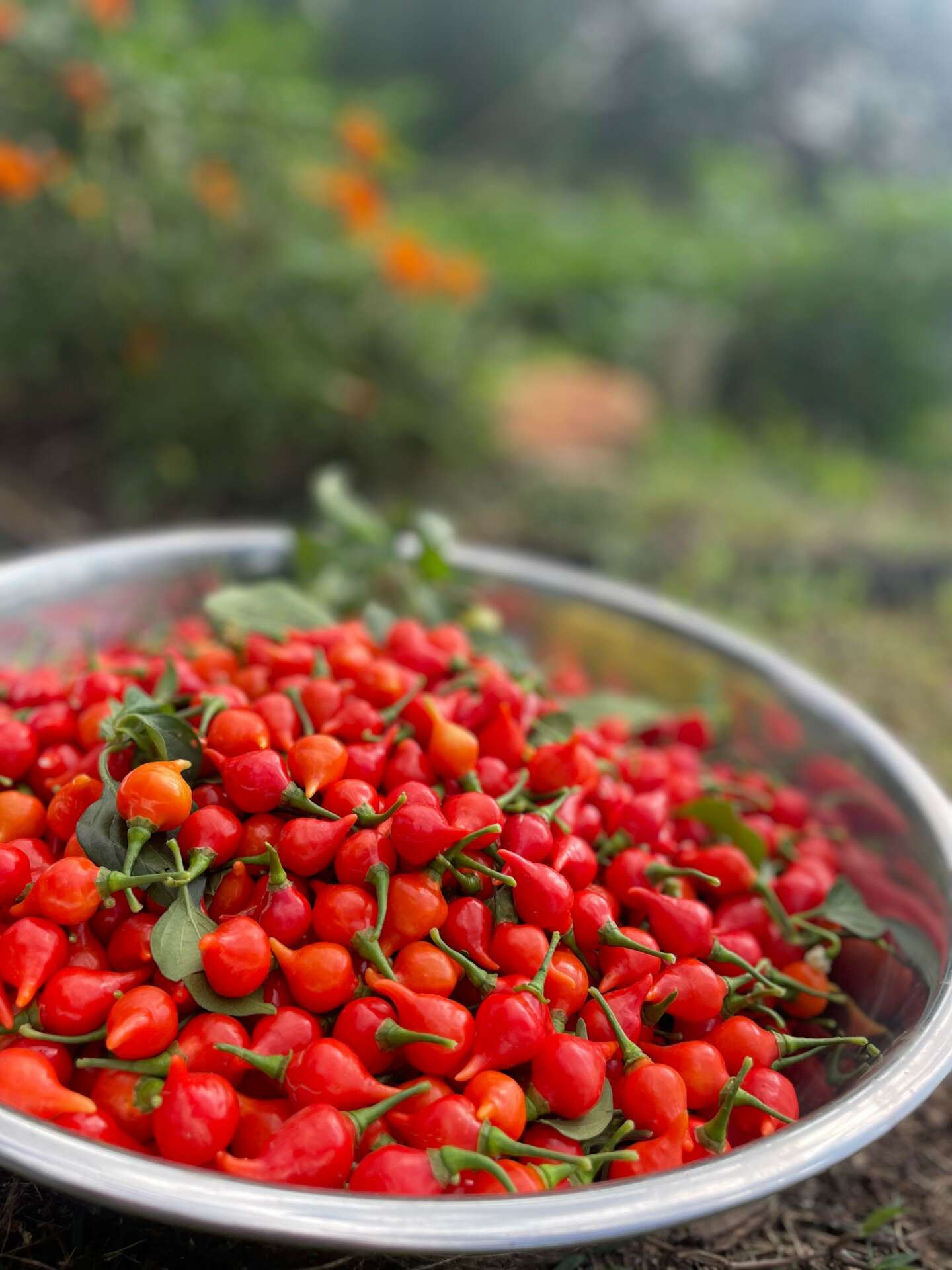We’re excited to introduce you to the always interesting and insightful Danielle Pereira. We hope you’ll enjoy our conversation with Danielle below.
Hi Danielle , thanks for joining us today. So let’s jump to your mission – what’s the backstory behind how you developed the mission that drives your brand?
“I want to be a farmer.” … “That’s irresponsible.” These two thoughts tumbled around in my mind for a year. I worked hard and invested in the success of my corporate career, and just one backyard garden seemed impractical and unworthy of a career change. Time with nature and in my garden had a way of convincing that the corporate ladder and a fluorescent-lit office could not. I traded high heels for garden boots and didn’t look back. I’ll forgive the friends and family who called me crazy to my face, and were serious about it. In their defense, I was a mom of three small children, dealing with a mystery health crisis, and a life oriented towards anything other than farming. I was at least honest enough with myself to acknowledge this new path toward farming would be messy, and grasped onto this idea that finally I had found what I was meant to do.
Our farm has a mission to draw people closer to the “place where food grows” so that they can discover the meaningful life experiences that food offers when experienced in a garden. It didn’t take more than one or two seasons selling veggies at a farmer’s market to realize that Farm in the Wildwood does not exist simply to grow and sell the most veggies, instead, the true purpose has always been to share my heart and the same beautiful discovery of nature with the many others in our society who are just like me and only one garden experience away from the awe of discovering nature first-hand.
The mission to bring people closer to nature and to gardening challenges our farm to reach beyond producing vegetables and find ways to creatively engage with the community. The farm is a place where customers can buy fresh veggies, but also purchase seeds to plant for their own garden. Our retail sits so close to our growing fields, that customers often comment on the pleasing fragrance in the air from our vibrant vegetable and herb installations. Comfortable and inviting, included is a community garden area with a picnic table for customers to truly enjoy nature that surrounds them. In addition, unique experiential learning like interactive gardening classes and community events such as “concert eventide” and “breakfast at the farm” draw people here for a dose of nature and wellness that perhaps they didn’t know they need. Opportunities for children to learn and be inspired by nature naturally are important here. Easels and paint for children to enjoy during their visit is a favorite tradition here. By writing an interactive children’s activity book about permaculture, I hoped to inspire many more children beyond the reach of our local farm.


Danielle , love having you share your insights with us. Before we ask you more questions, maybe you can take a moment to introduce yourself to our readers who might have missed our earlier conversations?
Farm in the Wildwood is a clean-grown, eco-conscious farm specializing in leafy greens while also growing a diversity of vegetables, herbs and fruits. We take great care in cultivating our products from healthy soils and practicing sustainable agriculture methods such as regenerative, permaculture, and eco-agriculture practices. The production of thoughtfully grown foods for our community has always been and hope will always be the platform from which we pursue our other ventures like value added goods, seasonal farmstand, classes and special on-farm events. “Eat clean. Eat close. Grow food.” is what we like to say and every farm activity is geared towards pointing our customers to this goal.
While learning to grow vegetables has been largely a “school of hard knocks” (still learning!), I knew that leveraging my past experiences in the professional services industry and general knowledge of good business practices could help to promote the farm’s success. Disciplines such as building a diverse business model, branding, quality control, and customer service were prioritized just as much as establishing our growing fields. Embracing theses transferable skills I had acquired in the years leading up to this farm project proved valuable for creating and sustaining opportunities for our new farm.
Perhaps more impactful than any bit of business savvy, was taking the time to understand my natural affinities and how this influenced my approach to becoming a farmer. An honest self-assessment helped me to understand that I am more an artist more than a scientist and that I am more relational than task-oriented. Does a farm require technical disciplines and methodical approaches? Absolutely–and I’ve got work to do. But on the other side, embracing the creative, relational, and feminine parts of me has produced a that farm acts differently, feels differently, looks differently, and is unafraid of trying new approaches to farming and connecting with customers. I’m proud of that.
Embracing the artist and relationship-oriented person that I am as a strength to be leveraged has made all the difference in forming the personality and authenticity of this farm. It illuminated a way forward for creativity, experimenting new ideas and curiosity to influence everything from our fields to our agritourism. Why not listen host a live classical music experience while eating cake and watching the sunset? What if we combined dill with cabbage and placed them near the onions as a pest strategy? Who can we collaborate and build relationships with that will enhance and strengthen the mission of this farm? The endless curiosity and open-mindedness feeds me and ultimately has moved this farm forward to what we are now which is a unique, boutique-like farm whose values are to be community minded, knowledge sharing, and approachable in executing its mission to bring people closer to the place where food grows.



Learning and unlearning are both critical parts of growth – can you share a story of a time when you had to unlearn a lesson?
Rhythm. I fell into farming like a square peg trying to exist in a round hole. On the surface it seemed obvious that nature does not operate like our capitalistic, corporate society, but my mind only knew the paradigm of constant growth, firm deadlines, quick turnarounds, and the control of outcomes. So when nature became my “office” it also became my teacher. I learned the hard way that nature’s growth is cyclical, not constant, and that my need for constant achievement would result in failure. My perception of control was humbled by caterpillars, wind storms, fire ants, weeds and rock-hard clay to name a few. For the first time I had chosen to work with my hands along with my mind which was deeply satisfying, but also exhausting. To succeed meant to embrace a wisdom that seemed opposite of how I had been taught to act and think. Very slowly I learned new wisdom like slow growth, cycles of achievement and rest, and adapting to changing outcomes instead of trying to control them.
Slowly, my life started to look more like the seasons. This created a positive impact on my life to slow down, let things go, and create space for reflection and healing. I experienced a level of personal development that would not have been possible without first embracing an enterprise more closely connected to the earth like farming.



What do you think helped you build your reputation within your market?
High quality standards aligned with high-touch customer service have opened doors of opportunity early and often. I realize this can be a result of being a highly conscientious person with a tendency towards perfectionism. It’s an approach that is unhelpful in the growing fields, but in the case of finding customers and keeping them, a razor-sharp standard like this is golden. Produce doesn’t leave the front door without double or triple quality checks. We make sure to prioritize communication and high-touch service to our customers. The reward has been long-time relationships with some of the best chefs in town—one of my favorite tasks as a farmer. When a chef chuckles with surprise and comments about our “squeaky clean” produce, then we know we’ve achieved our goal. We will go the extra mile to deliver on our promises, even at times to the farm’s disadvantage. And if for a reason beyond our control (like pests and weather) we can’t keep our promise, we communicate and make it right. This could be a discount or finding a meaningful solution like connecting them with another farm who can meet their needs that week.
We practice this same approach for our other products which has resulted in new and repeat customers. For example, our “Friend of Farm in the Wildwood” Produce Membership has more requests for memberships than bags that we can fill. Our gardening classes and farm events are often visited by repeat customers and are offered year after year with success.
The energy it takes to deliver high quality product with good customer service at each transaction and across our value streams has proven to be a solid investment for the future of our farm.
Contact Info:
- Website: www.farminthewildwood.com
- Instagram: @farminthewildwood
- Facebook: @farminthewildwood


